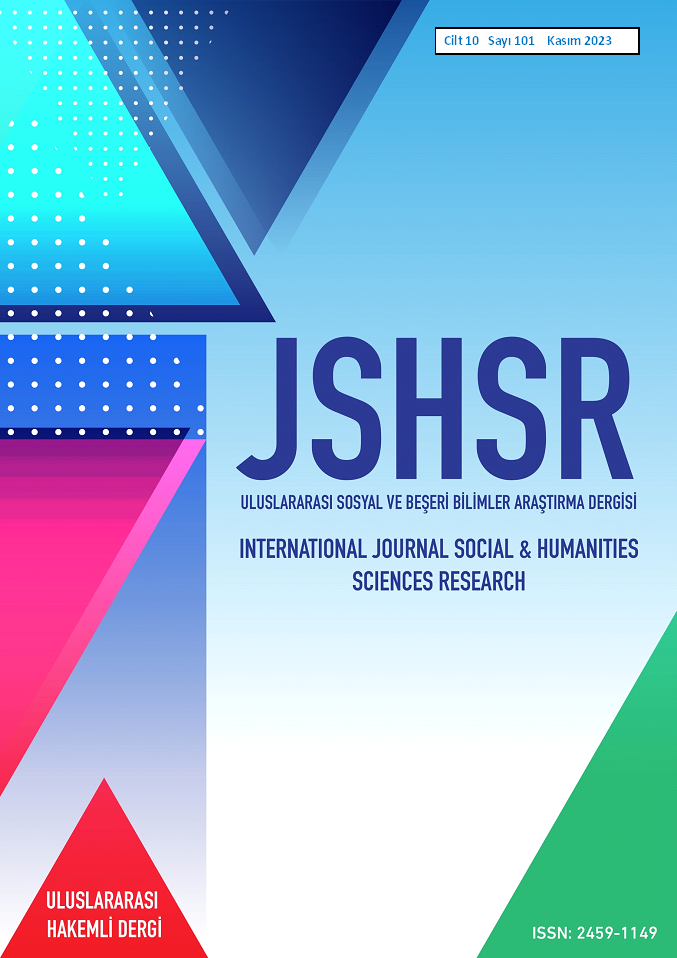Evaluation of the Sectors Where Students Graduated from Special Education Vocational Schools Are Employed Samsun Example
DOI:
https://doi.org/10.5281/zenodo.10256969Keywords:
Disabled graduates, Special education, Vocational School, employmentAbstract
Disabled individuals need to be integrated into social life. Employer institutions should make the necessary efforts in this regard. The employment of individuals in the disadvantaged group includes pre-job skills and post-job skills. The place of Special Education Vocational Schools is of great importance in providing these skills. This study, it was aimed to evaluate the sectors where students with mild mental disabilities who graduated from Special Education Vocational Schools affiliated with the ministry, who were in the center of Samsun province in the 2022-2023 academic year, were employed. For this purpose, in order to investigate the post-graduation employment of students who graduated from Special Education Vocational Schools, job placement statistical data of students who graduated from Special Education Vocational Schools in Samsun province were obtained by scanning method. In the data obtained, the number of students placed in the tourism sector was determined and the place of tourism in the employment of special education students was investigated.
In this study, aims to determine the sectors in which students studying in special education vocational schools are involved in job placement and business life and to determine the place of tourism within these sectors. On the other hand, the experiences gained in business life by individuals who graduated from special education vocational schools were compared with the education they received in vocational schools. In this context, the data of the students who graduated from the Special Education Vocational School in Samsun and the students who were employed were compared statistically. Based on the results of the study, it was found that special education vocational schools had an impact on the job placement results of disabled individuals. As a result of comparing the graduates and employed students of Special Education Vocational Schools, which contribute to employment, data was obtained that the employment rate is high.
References
Altınkurt, N. (2008). Özel eğitim ve iyileştirme merkezlerinde yaşanılan sorunlar ve çözüm önerileri [Doktora Tezi], DEÜ Eğitim Bilimleri Enstitüsü.
Aydın, A., Sarıer, Y., Uysal, Ş., Aydoğdu-Özoğlu, E. & Özer, F. (2014). Türkiye’de öğretmen istihdamı politikalarının değerlendirilmesi. Kuram ve Uygulamada Egitim Yönetimi Dergisi, 20(4), 397-420.
Çıngı, Ö. S. ve Eripek, S. (2002). Özel Gereksinimli Bireylerin İstihdamına Avrupa Penceresinden Bir Bakış. Özel eğitim. Anadolu Üniversitesi.
Kurt, B. (2020). Zihinsel engelli bireylerin istihdam sorunu ve çözüm önerileri [YL Tezi], İstanbul Gelişim Üniversitesi Sosyal Bilimler Enstitüsü.
Nartgün, Ş. S. (2007). Özel eğitim öğrencilerinin istihdam beklentileri. Abant İzzet Baysal Üniversitesi Eğitim Fakültesi Dergisi, 7(1), 141-158
Özbey, F. (2018). Türkiye’de engellilerin eğitimi (Genel-mesleki). Engelli Bireylerin Destekli İstihdamı, Akademik Kitaplar, İstanbul.
Özbey, F. & Diken, İ. H. (2010). Zihinsel yetersizliği olan bireylerin iş-meslek eğitimi ve istihdamlarına yönelik Türkiye’de yapılan araştırmaların gözden geçirilmesi. Ankara Üniversitesi Eğitim Bilimleri Fakültesi Özel Eğitim Dergisi, 11(02), 19-42.
Öztürk, M. (2012). Türkiye’de engelli gerçeği raporu. Canda Özür Olmaz Derneği.
Şener, B. & Tanrısever, C. (2017). Lise Düzeyinde Turizm Eğitimi Alan Hafif Düzeyde Zihin Engelli Öğrencilerin Staj Süreçlerine İlişkin İşveren Tutumları. Akademik Bakış Uluslararası Hakemli Sosyal Bilimler Dergisi, (64), 380-403.
Uzun, R. (2007). İstihdam sorunu bağlamında Türkiye’de iletişim eğitimi ve öğrenci yerleştirme. İletişim Kuram ve Araştırma Dergisi, 25(2), 117-134.
Downloads
Published
How to Cite
Issue
Section
License
Copyright (c) 2023 INTERNATIONAL JOURNAL OF SOCIAL HUMANITIES SCIENCES RESEARCH

This work is licensed under a Creative Commons Attribution 4.0 International License.


